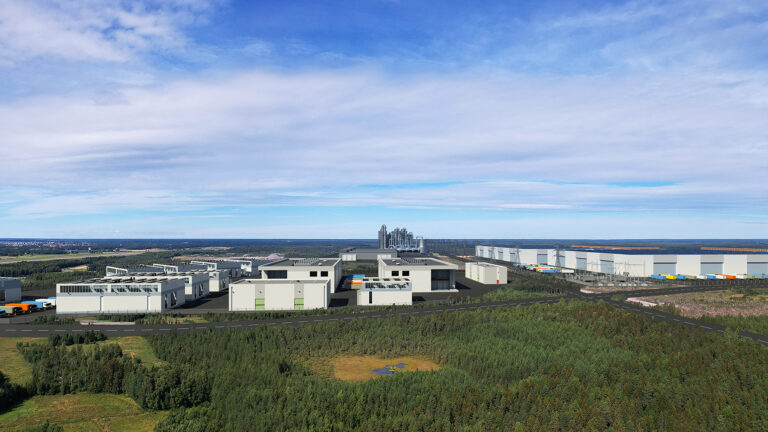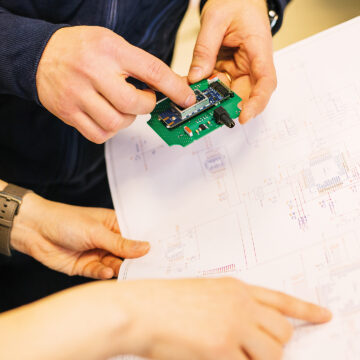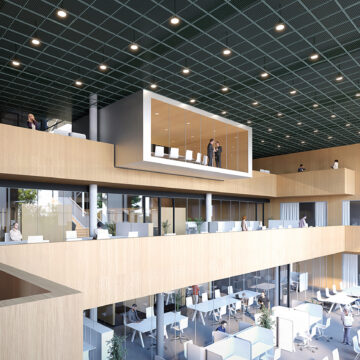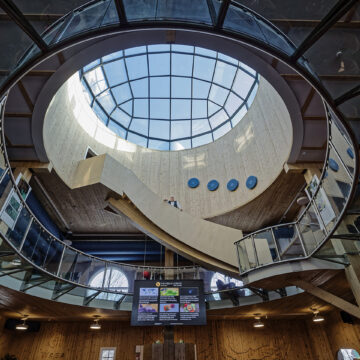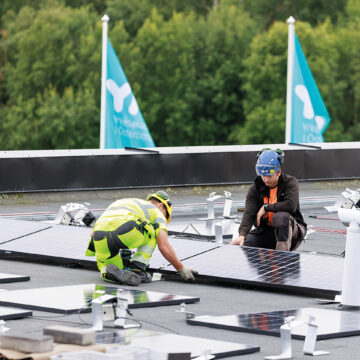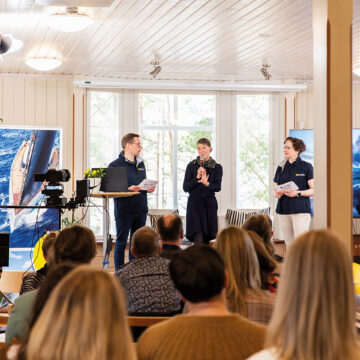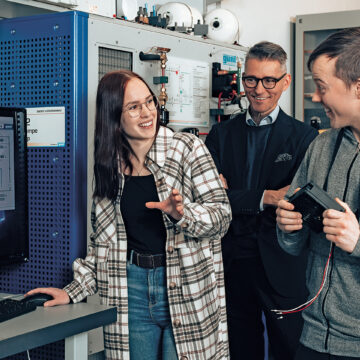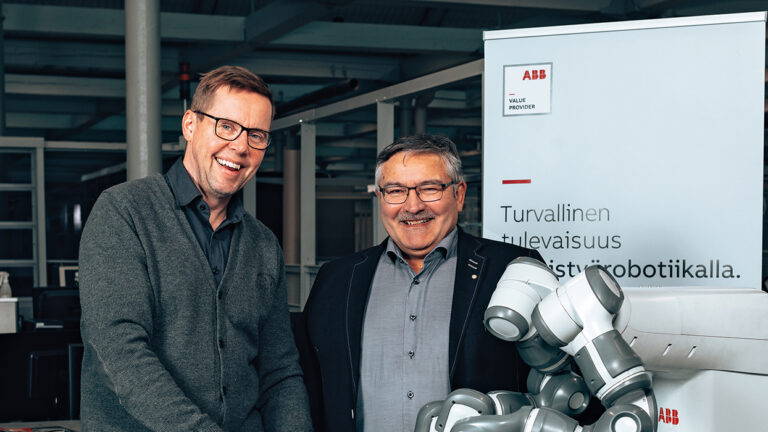
At VAMK, students develop robot applications that help the region prosper
In the world of digitalisation and robotics, engineers are needed more than ever. As new technological innovations are rapidly emerging, Vaasa University of Applied Sciences – VAMK – emphasises the importance of business cooperation and projects in education.
“At VAMK, theory and practice go hand in hand. Teaching has become more project-based, and it happens in different learning environments. These environments, such as laboratories, allow the design, simulation, and sometimes even the manufacture of real products and solutions that local businesses need – from small machine parts to large production units”, says Jorma Tuominen, Director of the School of Technology.
One of VAMK’s learning environments is the Robot Academy, where engineering students cooperate with each other, teachers, and companies. The projects can include designing and developing virtual models and digital twins of, for example, robot cells.
“Finland has high-level expertise in robotics, and our goal is to ensure that it is maintained in the future as well. In addition, Vaasa is home to major companies operating in the energy industry, and the need for new robotics solutions grows all the time. The Robot Academy does not only help our students to learn and grow, but also our country and region to prosper”, explains Mika Billing, Senior Lecturer in mechanical engineering.
Our goal is to ensure that Finland’s high-level expertise in robotics is maintained in the future as well
3D printing, or additive manufacturing (AM), is also in high demand worldwide. In VAMK’s R&D laboratory Technobothnia, students print machine parts for industrial needs from varying materials.
“AM skills will be essential for future engineers. AM is logistically convenient since products can be designed in Finland and printed elsewhere. Compared to freight traffic, data transfer is inexpensive and environmentally friendly. AM also reduces material waste, and so do the different virtual models we make. Digitalised production allows us to optimise the use of materials and buy only what we really need”, states Billing.

